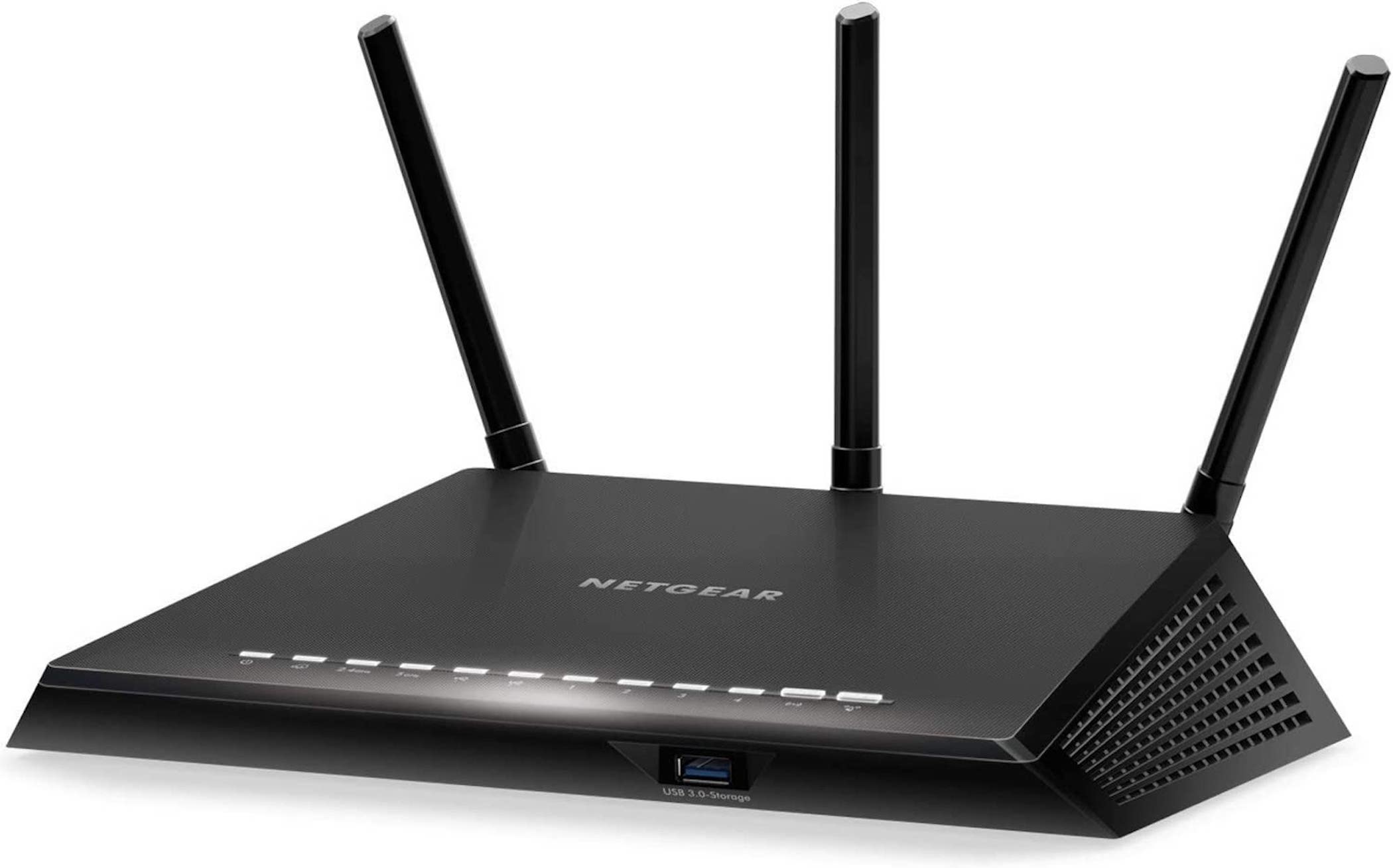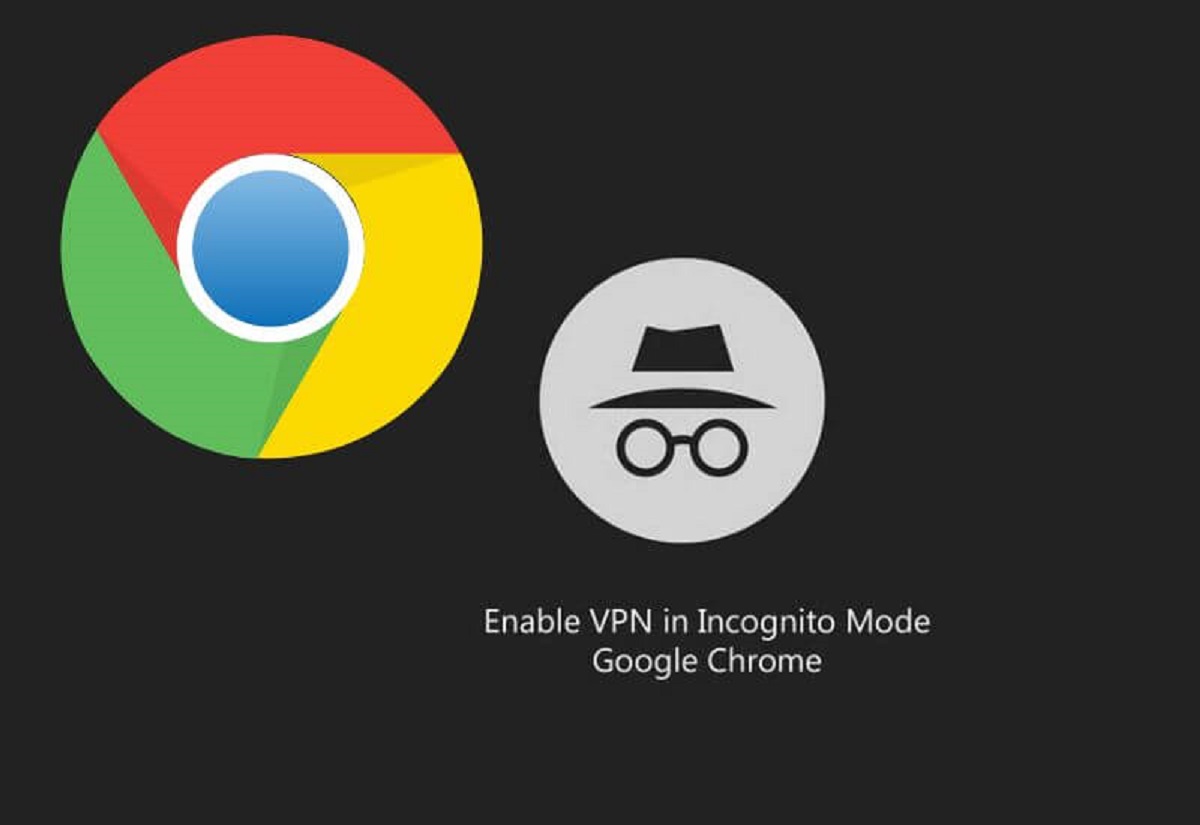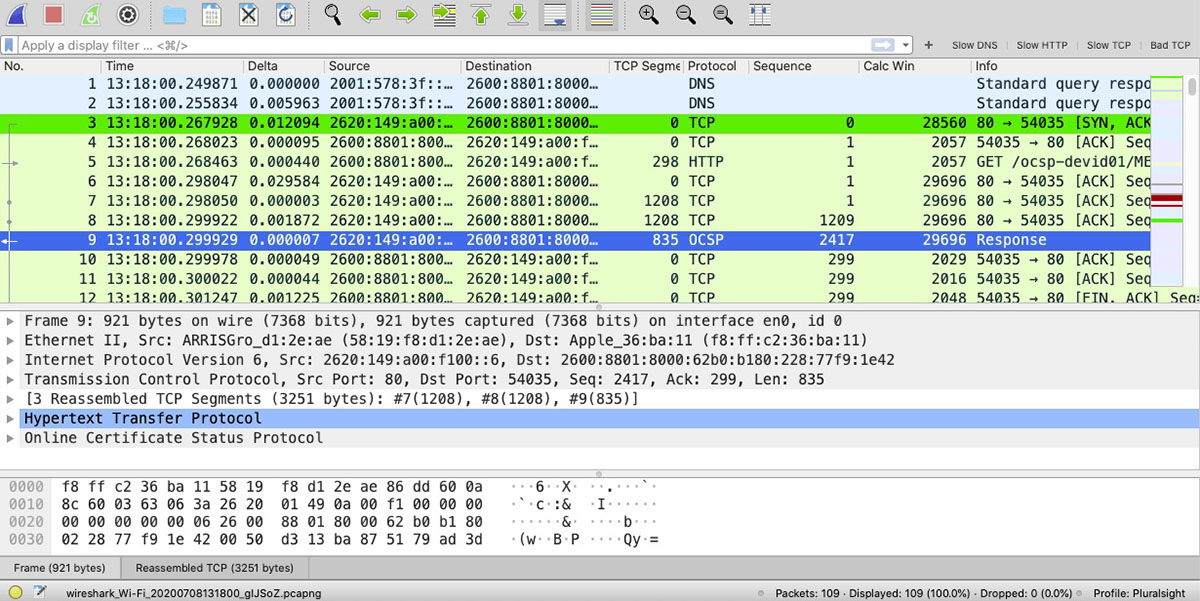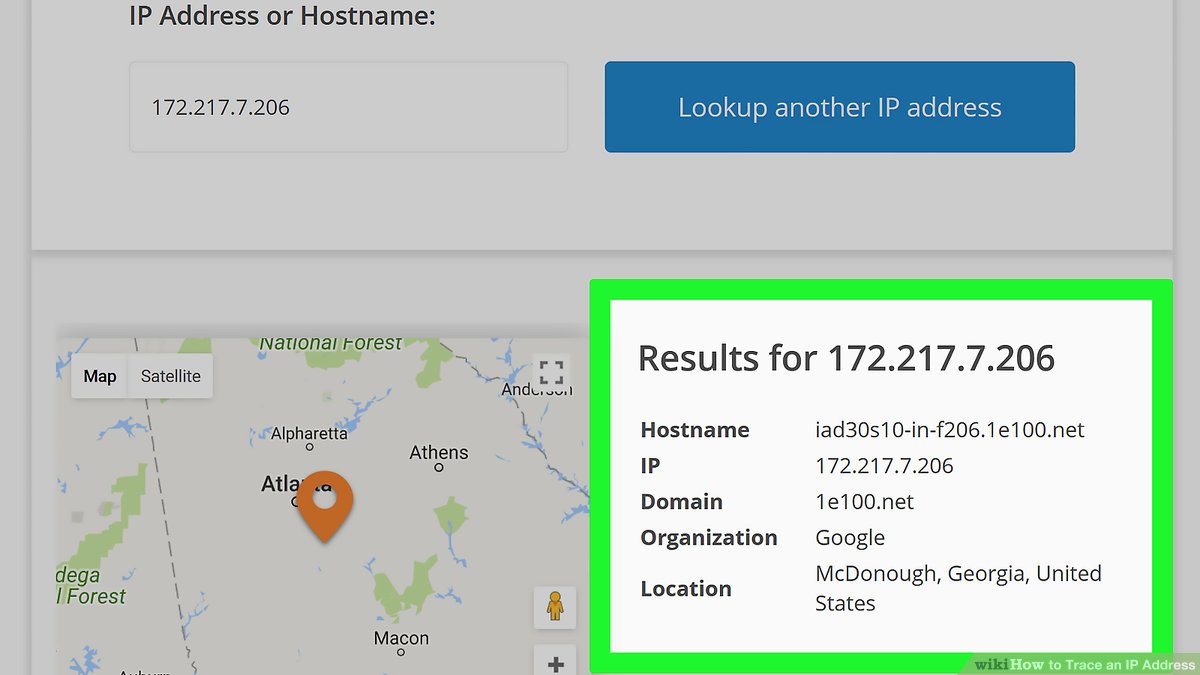Introduction
Welcome to the digital age, where every device connected to the internet has a unique identifier that allows it to communicate with other devices. This identifier, known as an IP (Internet Protocol) address, is a crucial component of the internet infrastructure. It plays a significant role in facilitating communication between devices and enabling the transfer of data across networks.
In simple terms, an IP address is like your digital address on the internet. It serves as a unique identifier for your device, allowing it to send and receive information from other devices and servers. Just like your physical address helps determine your location, your IP address reveals your online location.
Whether you’re browsing the web, streaming videos, or checking your emails, your IP address is constantly at work, connecting your device to the vast web of information. But have you ever wondered where exactly you are in the digital realm? Do you know the exact address associated with your IP address?
In this article, we will explore how to find your IP address and understand its significance. We will also delve into the importance of knowing your exact location and how you can determine it using your IP address. So, let’s embark on this exciting journey to discover where you are right now in the vast digital landscape.
What is an IP Address?
In order to understand how to find your location using an IP address, it’s essential to grasp what an IP address actually is. An IP address is a unique numerical label assigned to each device connected to a computer network that uses Internet Protocol for communication. It serves as an identifier, allowing devices to send and receive data over the internet.
An IP address consists of a series of numbers, separated by periods, which are classified into two types: IPv4 and IPv6. IPv4 addresses are the most commonly used and are composed of four sets of numbers, each ranging from 0 to 255 (e.g., 192.168.0.1). On the other hand, IPv6 addresses are more advanced and are represented by eight sets of alphanumeric characters (e.g., 2001:cdba:0000:0000:0000:0000:3257:9652).
Think of an IP address as the digital equivalent of your home address. Just as your home address allows postal services to deliver mail to your doorstep, an IP address enables data packets to reach your device from other devices or servers on the internet.
IP addresses are allocated and managed by various organizations worldwide. Internet Service Providers (ISPs) assign IP addresses to their customers, ensuring that every device connected to their network has a unique identifier. This allows for efficient communication and ensures that the right information reaches the intended device.
It’s important to note that IP addresses can be dynamic or static. A dynamic IP address is assigned to a device temporarily and changes each time it connects to the internet. On the other hand, a static IP address remains unchanged and is typically used for services that require a constant online presence, such as web servers or VoIP servers.
Now that we have a basic understanding of what an IP address is, let’s move on to learning how to find your IP address.
How to Find Your IP Address
There are several ways to find your IP address, depending on the device and operating system you are using. Here are some common methods:
- Using a search engine: Simply search for “What is my IP address” on a search engine, and it will display your public IP address. This method works on any device with internet access.
- Checking network settings: On a Windows computer, you can navigate to the Control Panel, select Network and Internet, and click on Network and Sharing Center. From there, click on your active network connection and select Details. Your IP address will be listed as IPv4 Address. On a Mac, go to System Preferences, select Network, and your IP address will be displayed next to Status.
- Using command prompt or terminal: If you are comfortable with command-line interfaces, you can use the command prompt (Windows) or terminal (Mac or Linux) to find your IP address. Simply open the command prompt/terminal and type “ipconfig” (Windows) or “ifconfig” (Mac or Linux) and hit enter. Your IP address will be listed under the section corresponding to your network connection.
- Checking IP settings on mobile devices: On smartphones and tablets, you can usually find your IP address in the network settings. For iOS devices, go to Settings, select Wi-Fi, tap on the connected network, and your IP address will be listed under the DHCP tab. On Android devices, go to Settings, select Network & Internet, tap on the connected Wi-Fi network, and your IP address will be listed under IP Address.
It’s important to note that there are two types of IP addresses: public and private. Your public IP address is the address assigned by your ISP, which can be accessed by other devices over the internet. On the other hand, a private IP address is the address assigned to your device within your local network, such as your home or office. Private IP addresses are not visible to devices outside of your network.
Now that you know how to find your IP address, let’s explore the significance of this unique identifier.
What is the Significance of an IP Address?
An IP address is more than just a series of numbers; it serves crucial purposes in the realm of digital communication. Understanding the significance of an IP address can help you appreciate its role in facilitating internet connectivity and data transfer. Here are some key reasons why IP addresses are significant:
Device Identification: An IP address acts as a unique identifier for your device on the internet. It differentiates your device from billions of other devices connected to the web, allowing data packets to be sent and received accurately.
Internet Routing: IP addresses play a vital role in routing data across networks. When you request information from a website or send an email, your IP address is used to ensure that the data is directed to the correct destination. This routing process ensures efficient communication and enables data to flow seamlessly across the internet.
Network Security: IP addresses are integral to network security measures. They allow network administrators to monitor and control incoming and outgoing traffic, detect and block potential threats, and implement firewall rules to protect devices and networks from unauthorized access.
Geo-Location: IP addresses can provide approximate geographic information about the user’s location. By analyzing the IP address, websites and online services can tailor their content, display local advertisements, and provide region-specific information. This personalized experience enhances user engagement and improves the relevance of the information provided.
Quality of Service: With IP addresses, internet service providers can allocate resources and prioritize traffic based on the needs of different users. This ensures a fair distribution of bandwidth and optimizes the performance of internet connections, especially in scenarios where multiple devices are accessing the internet simultaneously.
Overall, the significance of an IP address lies in its ability to enable seamless communication, enhance security measures, and provide personalized online experiences. Understanding the role of IP addresses can help you navigate the digital landscape more effectively and make informed decisions about your online activities.
Why is Knowing Your Exact Location Important?
Knowing your exact location, especially in the digital realm, holds a significant level of importance for various reasons. Let’s explore why having knowledge of your precise location is essential:
1. Online Security: Understanding your exact location helps in assessing your online security risks. It allows you to determine if you are accessing the internet from a secure network or if you are connected to public Wi-Fi, which may pose potential security threats. By being aware of your location, you can take necessary precautions to safeguard your digital activities and protect sensitive information.
2. Personalized Services: Many online services, such as e-commerce platforms, streaming services, and search engines, rely on your location to provide personalized recommendations and tailored content. Knowing your exact location allows these platforms to offer region-specific deals, local news, and relevant information that enhances your online experience.
3. Emergency Situations: In cases of emergencies, such as natural disasters or medical emergencies, knowing your exact location becomes vital for seeking assistance. When communicating with emergency services, providing your precise location helps them to respond quickly and efficiently.
4. Legal and Regulatory Compliance: Different jurisdictions have specific laws and regulations that may vary based on your location. Being aware of your exact location ensures that you can comply with local legal requirements, such as taxation, copyright regulations, and data protection laws.
5. Geo-Targeting Advertising: Marketers often use location data to deliver targeted advertisements and promotions. By knowing your exact location, you can receive advertisements that are relevant to your area, increasing the chances of discovering local businesses, events, and offers that may be of interest to you.
6. Geographical Content Restrictions: Content availability and access can vary based on your location due to licensing agreements, censorship laws, or regional restrictions. By knowing your exact location, you can assess if certain content or services may be restricted in your area and explore alternative options.
7. Travel and Navigation: When traveling, knowing your exact location is crucial for navigating unfamiliar areas, accessing location-based services, and finding nearby amenities such as restaurants, hotels, and tourist attractions. It helps you make informed decisions and ensures a smooth travel experience.
Knowing your exact location provides a range of benefits, including enhanced security, personalized experiences, compliance with regulations, and access to location-based services. By being aware of where you are in the digital realm, you can optimize your online activities, stay safe, and make the most of the services and opportunities available to you.
How to Determine Your Exact Location Using Your IP Address
Your IP address carries valuable information that can help determine your approximate location. Although it may not provide an exact street address, it can give you a general idea of your geographical location. Here are a few methods to determine your exact location using your IP address:
1. IP Geolocation Database: There are several IP geolocation databases available online that map IP addresses to specific locations. These databases collect data from ISPs and other sources to create a comprehensive database that associates IP addresses with geographical coordinates. By inputting your IP address into one of these databases, you can obtain valuable information about your city, region, and country.
2. IP Geolocation APIs: Many websites and online services offer IP geolocation APIs, which allow developers to integrate IP-based location services into their applications. These APIs utilize advanced algorithms and integrate with extensive geolocation databases to provide accurate location data based on IP addresses. By using these APIs, websites can determine your approximate location based on your IP address.
3. Internet Service Providers (ISPs): Your internet service provider plays a role in determining your approximate location. ISPs often have regional or localized IP address allocations, which can give a clue about your location. However, keep in mind that this method may not provide the most precise location information, as ISPs typically serve large areas and allocate IP addresses accordingly.
4. Mobile Network triangulation: In the case of mobile devices, location information can be determined through a process called triangulation. Mobile networks use nearby cell towers to estimate a device’s location by analyzing signal strength and time taken for data to traverse between towers. This method provides relatively accurate location data by using the device’s SIM card and network signals.
5. Wi-Fi Network Geolocation: Wi-Fi network geolocation is another method used to determine a device’s approximate location. By analyzing the available Wi-Fi networks in proximity, along with their corresponding signal strength and known location data, your device can estimate its location based on nearby Wi-Fi networks. This method is commonly used in devices such as laptops, smartphones, and tablets.
While these methods are likely to give you a general idea of your location, it’s important to note that they may not provide precise information, especially for individuals using virtual private networks (VPNs) or proxy servers, which can mask their true IP address and location.
By understanding how to determine your approximate location using your IP address, you can gain insights into your online presence and navigate the digital landscape with a greater understanding of your virtual footprint.
Benefits of Using IP Address to Locate Your Current Position
The ability to use an IP address to locate your current position offers several benefits that can enhance your online experience. While it may not provide an exact address, leveraging IP address geolocation can be beneficial in various ways:
1. Personalized Content: By knowing your approximate location based on your IP address, websites and online services can deliver personalized content tailored to your region. This includes localized news, weather updates, promotions, and recommendations that are relevant to your area. This personalized approach enhances user engagement and ensures that you receive information that is specific to your location.
2. Local Business Information: Geolocation-based services can provide you with valuable information about local businesses in your area. When searching for restaurants, shops, or services, knowing your approximate location allows search engines or directory services to provide relevant results based on proximity. This can save you time and effort by presenting businesses that are convenient and easily accessible to you.
3. Language Localization: Websites can automatically adjust to your preferred language based on your IP address and location. This feature eliminates the need to manually switch languages and ensures that content is presented to you in a language you understand and are comfortable with, enhancing your browsing experience and accessibility.
4. Targeted Advertising: Businesses can leverage IP address geolocation to deliver targeted advertisements. By knowing your approximate location, advertisers can display ads specific to your region, promoting products and services that are available and relevant to you. This level of targeted advertising increases the chances of discovering local deals and offerings that are of interest to you.
5. Improved Service Availability: Some online services, such as streaming platforms, may have region-specific content or availability based on licensing restrictions. By using your IP address to determine your location, these services can ensure that you have access to the appropriate content and ensure compliance with licensing agreements. This benefits both content providers and users, as it allows for a more seamless and relevant streaming experience.
6. Fraud Detection and Security: IP geolocation can be used for fraud detection and security purposes. By comparing your IP address to known patterns and suspicious activities, online platforms can identify potential fraudulent behavior and take necessary precautions to protect users and maintain the integrity of their services. This helps in preventing unauthorized access and ensuring a secure online environment.
Utilizing IP address geolocation offers numerous advantages, including personalized content, access to local business information, language localization, targeted advertising, service availability, and enhanced security. By leveraging this technology, you can have a more tailored and relevant online experience based on your current geographic location.
Limitations of Using IP Address to Determine Your Location
While using an IP address to determine your location can provide valuable insights, it’s crucial to be aware of its limitations. Here are some limitations to consider:
1. Inaccuracy: IP address geolocation is not always precise and can only provide an approximation of your location. The accuracy of the results depends on the quality and coverage of the geolocation database used, as well as the type of IP address being analyzed. Factors such as VPNs, proxy servers, and mobile networks can further complicate the accuracy of location determination.
2. Reliance on IP-based Data: Geolocation databases primarily rely on IP address information provided by various sources. These sources may not always have up-to-date or accurate location data, leading to potential errors in geolocation results. Changes in IP address assignments and network configurations can further impact the accuracy of location determination.
3. Limited Physical Address Details: IP address geolocation typically provides information about the country, city, or region associated with an IP address. However, it does not provide the specific street address or exact physical location. This limitation can be significant when precise location information is required, such as emergency situations or asset tracking.
4. Dynamic IP Addresses: Many internet service providers (ISPs) assign dynamic IP addresses that change periodically. This means that the IP address associated with your device can be different each time you connect to the internet. Dynamic IP addresses can make it challenging to maintain an accurate and consistent mapping of IP addresses to locations.
5. Shared IP Addresses: In some cases, multiple devices may share the same IP address due to network address translation (NAT) techniques employed by ISPs or organizations. This can result in inaccurate location data, as the IP address may be associated with a location different from the actual device.
6. Mobile Network Limitations: Geolocation accuracy can be affected when using mobile devices, especially in areas with limited cellular coverage or when connected to Wi-Fi networks that don’t have accurate geolocation data. Additionally, mobile devices often switch between cellular towers, impacting the consistency and accuracy of location data.
7. Legal and Privacy Regulations: IP-based geolocation can be subject to legal and privacy regulations that may vary across different jurisdictions. These regulations can limit the accuracy or availability of location data, impacting the reliability of IP address geolocation services in certain regions.
Considering these limitations, it’s important to use IP address geolocation as a general indication of location rather than relying on it for precise or critical applications. For more accurate and specific location information, alternative methods, such as GPS or Wi-Fi-based positioning systems, may be more suitable.
Conclusion
Understanding the role and limitations of IP addresses in locating your position can be beneficial in navigating the digital landscape. While an IP address can provide valuable insights about your approximate location, it’s important to remember that it is not always accurate or precise. Various factors, such as dynamic IP addresses, shared IP addresses, and limitations in geolocation databases, can impact the accuracy of determining your exact location.
Despite these limitations, leveraging IP address geolocation can still offer several advantages. It allows for personalized content, targeted advertising, access to local business information, and enhanced security measures. By knowing your approximate region, you can receive content and services tailored to your location, ensuring a more relevant and engaging online experience.
However, it’s crucial to keep in mind that IP address geolocation should be used as a general indication of location rather than relying on it for precise or critical applications. When precise location information is required, alternative methods like GPS or Wi-Fi-based positioning systems can provide more accurate results.
In the end, knowing your IP address and understanding its significance can help you navigate the digital landscape more effectively, make informed decisions about your online activities, and enhance your overall online experience. By being aware of the limitations and strengths of IP address geolocation, you can utilize this information to your advantage while keeping your privacy and security in mind.

























